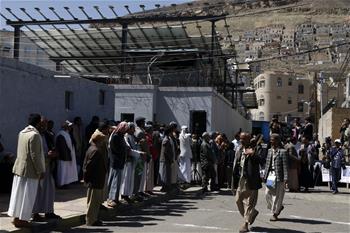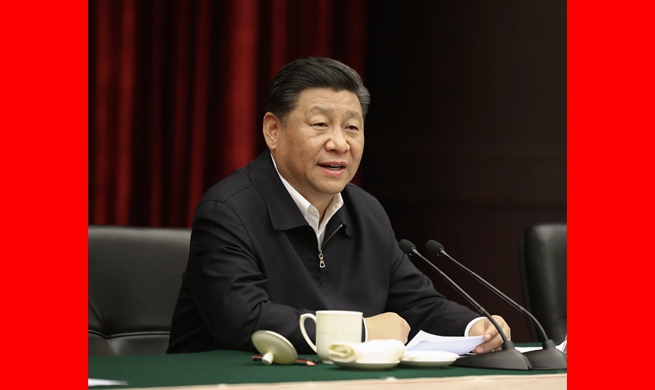BRUSSELS, April 17 (Xinhua) -- Gruyere cheese, cuckoo clocks and jumbo jets may not appear to have much in common, but as the United States prepares countermeasures in a growing trade dispute with the European Union, tit-for-tat over subsidies to aircraft manufacturers Airbus and Boeing loom over the future of customs duties for products as various as French wine and German electronics.
And on Wednesday, Brussels flexes its own muscles, adding coal, cod and handbags to a list of goods worth 20 billion U.S. dollars that it plans to levy as retaliation against U.S. subsidies to Boeing.
At the heart of the dispute are dueling claims by Washington over European support for Airbus, and on the part of Brussels, for U.S. aid for Boeing, that have led to both sides claiming victory in a series of litigation procedures at the World Trade Organization (WTO). The more than 14-year dispute, however, reveals the persistent tensions in what is anything but a win-win situation.
The dispute began in 2004 when the United States requested a WTO consultation, which is an official complaint procedure, over European aid to Airbus, giving the European manufacturer an unfair advantage in the Large Civil Aircraft (LCA) marketplace.
Washington specifically contested financing for design and development in the form of "launch aid", governmental grants and goods for development, preferential loans, debt-forgiveness, and other measures which directly supported the development of Airbus products, aircraft ranging from the A300 to the A380.
The following year, in 2005, the European Union lodged its own WTO consultation request against the U.S. for subsidies it claimed having been provided to American aircraft manufacturer Boeing, leading to unfair prejudice and cost-suppression in the LCA sector.
The complaint from Brussels targeted local support in the form of tax programs and business incentives for Boeing facilities in several U.S. states, such as Washington and South Carolina; payments and access to facilities, equipment and employees provided by NASA in relation to multiple R&D contracts; as well as through 23 Department of Defense (DOD) contracts; intellectual property "waivers" and "transfers" from NASA/DOD programs; and other U.S. programs the EU claimed to be in fact subsidies.
Both disputes have gone through a lengthy series of panel investigations and subsequent appeals, with the WTO finding in May 2018 that the EU had provided subsidies to Airbus that were not compliant with WTO rules.
Following the ruling, Brussels focused on the WTO finding that many of the subsidies in question had expired in 2011, while Washington made a request for WTO authorization to impose retaliatory tariffs of 11 billion U.S. dollars per year.
The EU's complaint, meanwhile, was also partially upheld, with the WTO finding on March 28, 2019 that the U.S. had continued to provide a range of subsidies to Boeing that had earlier been judged out of compliance with WTO rules. Now the EU has a list of U.S. exports worth 20 billion dollars that it wants to levy, pending on the approval of the WTO.
WTO decisions on the amount of acceptable levies in both cases are expected later.
With both parties arguing that illegal subsidies helped displace aircraft sales in markets such as China and India, while both claiming victory and preparing retaliatory measures, the dispute appears far from over, despite Brussels' call for dialogue on Wednesday.
This seems particularly true as the trade dispute melds with other transatlantic trade tensions, such as those brought on by U.S. tariffs introduced in 2018 on European steel and aluminum and EU's countermeasures.













